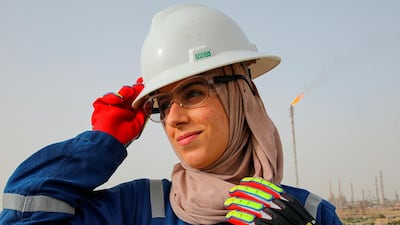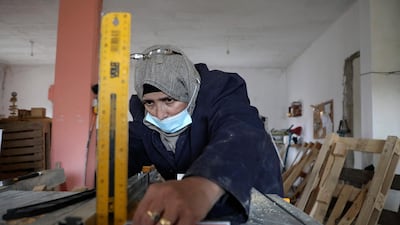It is no surprise that the Covid-19 pandemic has been a major disruptor to economies at large and as we zoom in on the implications of this global fallout, a pattern of gender disparity becomes clear. As women are the ones who handle the bulk of family caregiving responsibilities and with the disruption of the childcare sector, women's jobs were 1.8 times more impacted by the pandemic than men. This not only raises a social dilemma, but will also have a measurable impact on the global economy, where the global GDP could be $1 trillion lower in 2030 versus $13tn higher if gender inequality is not properly addressed, according to a recent report by consulting firm McKinsey on the future of work.
Across the globe, pressures felt by women to assume bigger roles as the primary caregivers during the pandemic led to a disproportionate increase in time spent on family responsibilities. In India, this figure equated to a 30 per cent rise in time spent on unpaid care. Comparatively, women in the US spent an additional 1.5 to two hours tending to caregiving duties. The impact this has on the global labour force is further amplified by the fact that in some markets, such as Nigeria, women are disproportionately represented in sectors that have been negatively affected by the pandemic.
Gender parity is more than just a tagline and cannot be achieved through a single “cultural” initiative; it is a conscious business decision that enhances the bottom line, and one that should be integrated as part of the business model. As a first step, employers need to revisit their diversity and inclusion strategies and start identifying any existing gaps in their workplace cultures and organisational policies.

Today, the Middle East is falling behind. Despite improvements that have taken place in some industries and governments, the region overall still holds the lowest female labour force participate rate in the world, according to another McKinsey report from 2020 on the region's prospects for women at work. A study cited in the report in found that women in the Middle East are exposed to challenges including constrained interactions with seniors, limited support from team members and reduced exposure to role models and mentors. Other barriers that have been identified include limited policies on work-life balance, lack of clarity on advancement opportunities and lack of essential services at work.
Still, the picture is not all negative. In the UAE, the passing of a labour law in 2018 guaranteed equal pay for men and women who perform the “same work” or work of “equal value”. The following year, the UAE introduced three months’ paid maternity leave for government employees, placing pressure on the private sector to follow suit by increasing the number of days allotted to women, which currently stands at 45. Similarly, efforts to create a truly inclusive culture have led to a notable increase in participation by women in the UAE’s workforce, reaching 53 per cent in 2019, from 29 per cent in 1990. Elsewhere in the region, Saudi Arabia set out to achieve 30 per cent participation in the workforce by women as part of the country’s Vision 2030 campaign. As of 2019, that figure had reached 23 per cent, up from 16 per cent in 1990.
In paving the way for more progress, employers should look to seize opportunities that make a measurable difference in addressing these gender disparities by upscaling their organisational policies and increasing female participation in their activities. As an immediate step, it is essential to educate the workforce through awareness-based trainings on gender equality with the aim of countering gender-based stereotypes and biases. At Nissan, where I manage human resources for the region, we run unconscious bias trainings and continue to roll out awareness initiatives to encourage employees to become more mindful of them.
As the Middle East region continues to play catch up, female recruitment becomes all the more significant. Increased female participation in the workforce, especially in industrial sectors such as the automotive industry, delivers substantial economic and societal benefits, including an uptick in business performance, financial independence for women in society, improved well-being and accelerated economic growth.
Rolling out gender-sensitive recruitment processes that integrate a diversity policy as part of the application process and setting diversity quotas for senior positions are examples of actions that can be taken to address this disparity. In addition to upscaling recruitment and appraisal policies, Nissan’s own experience has found that offering women access to mentorship programs can help them pave their path towards career growth, increase talent retention rates and positively impact the business.
Lastly, maintaining workplace flexibility and extending unique benefits are moves that also make a variable difference in employee retention. The pandemic has really showcased the endless possibilities of remote working and how it is extremely effective. Therefore, it becomes crucial for employers to offer flexible working conditions and remote-working schemes to accommodate the evolving needs of the female workforce.
The pandemic, in many ways, has been an eye-opening phenomenon. However, it is up to us to decide whether we want to ignore its lessons or leverage them as opportunities for change and growth. The repercussions of gender disparity have proven to be substantial, while the benefits of eliminating this imbalance could really enhance social and economic outcomes for millions of women around the world. Now is the time for corporations to act and, as we embark on a new year, it is the perfect time to start introducing forward-thinking changes to the workplace.
Samar Elmnhrawy is vice president for human resources and general affairs at Nissan Africa, Middle East, India, Europe and Oceania











